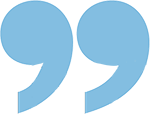Spotlight: Dean Wright

Ethics professor talks ethics and experience
Story and photo by Jaya Flanary
Within the walls of Western’s journalism department, a vast array of faculty exist. Among them is Dean Wright, an adjunct professor with a long resume and a passion for ethics.
Wright’s teenage years were spent admiring the sense of social justice in the 1960s, leading to his wanting to be a politician. Later, however, he decided to test the waters in journalism.
“I decided that it’s a lot more interesting to write about politicians than to be one,” Wright said.
He studied journalism at the University of Tennessee before moving to Canada to attend Mount Royal University in Calgary, Alberta. His first journalism job was as a business reporter at a small daily, The Albertan. But Wright wanted more, so he moved across the country to London, Ontario.
And so his resume began.
“I became a page one editor there back in the old dinosaur days when you had page ones and we had print newspapers,” Wright said.
After three or so years, he transferred to the Toronto Star where he worked the national desk and learned the value of a punchy headline.
Homesickness fueled his return to the states eight years after moving to Canada. Wright ended up working as an editor for the Courier-Journal in Kentucky on the international desk, then as an arts and entertainment editor for The Mercury News in San Jose, Calif., where he met his wife Joan Connell, who also teaches journalism at Western.
When Connell’s career took the pair to Washington. D.C, Wright became assistant national editor at the Baltimore Sun, where he worked on the 1992 presidential election, and then a writer and editor at the Associated Press.
Wright thinks journalists have to be “generalists.”
“We have to know a little bit about a lot of things,” he said.
In 1996 he took a job in Redmond, Washington, at MSNBC — the new joint venture between Microsoft and NBC. His AP colleagues thought it “was an act of utter madness.”
“That was really in the pioneer days of digital journalism,” Wright said.
At the time, MSNBC struggled to get their video material out to online users. “A lot of people were still then connecting to the internet on dial-ups, so you could show video but it would just be a series of jerking images,” Wright said.
“That marriage of NBC and Microsoft really did bare some fruit because I think it was one of the original ventures that came to revolutionize the news business,” Wright said.
Wright’s move to MSNBC was risky, and he’s pleased he had the foresight to enter into the world of digital journalism, he said. He eventually became the Editor-in-Chief. Wright and Connell also started a “mom and pop consulting operation,” Connell Wright Media, around the time they moved.
He eventually left MSNBC to work for Reuters, where he became the global editor for ethics and standards.
“It was my job to make sure that the 2,600 or so journalists around the world at Reuters had the tools and the training and the guidance to do their jobs in an ethical way,” Wright said.
The value of ethics was instilled in him at MSNBC and Reuters. When Wright and Connell moved to the Bellingham, Washington area, Connell began teaching at Western. Wright soon followed and started teaching journalism in 2014, including an ethics class.
“I think it’s important to introduce students to the larger world of journalism too because there are no borders anymore in how news is delivered,” Wright said.
In his ethics class, Wright gives his students an interactive exam in which they face a realistic ethical dilemma as editors and are responsible for making and explaining appropriate ethical decisions.
Wright’s time teaching has shown him that students see themselves as “citizens of the world” rather than just Americans.
“So many of the journalism students that I’ve encountered here have a sense of service,” Wright said. “They think of it almost as a national or an international service, if you will, because they want to do good … I think it’s wonderful.”
This sense of service is crucial in today’s industry.
“There is an almost existential challenge to our profession from people who really don’t like us and people who say we’re enemies of the people,” Wright said. “The nation, and the world needs us more than ever and that’s why I think doing our jobs in an as ethical way as you can and frankly being defenders of democracy is really essential for journalists nowadays.”
Wright believes journalism will become even more interactive and visual in the future, so journalists have to be proficient in digital media. He also believes journalism will transcend just reporting an incident as fast as possible, and start to include the implications of the event reported.
“The most important thing we do is to be a voice for the voiceless,” Wright said. “It doesn’t happen every day, every week. It doesn’t happen all that often. But when we can do that, we should really feel good.”
